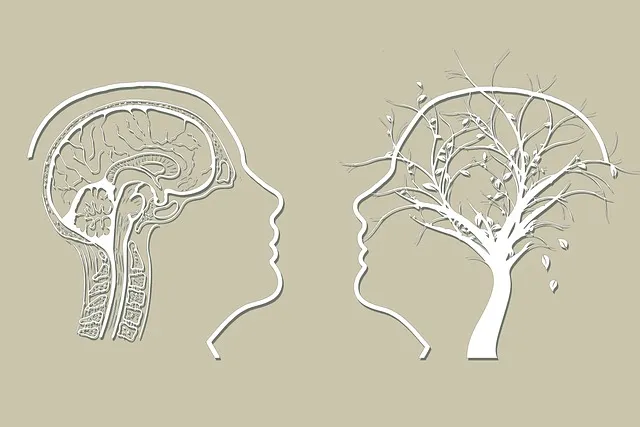Kaiser Permanente in Parker offers comprehensive mental health services, including therapy, counseling, and stress management workshops, promoting affordable and accessible care with a focus on prevention. Their Kaiser Permanente mental health coverage in Parker and beyond reduces stigma through community-based initiatives, education, and advocacy. Measuring success through KPIs like help-seeking rates and public perception surveys, they continuously refine their programs to address mental illness stigma effectively.
Mental illness stigma significantly hinders access to care, with nearly half of Americans avoiding treatment due to fear of judgment. Organizations like Kaiser Permanente are leading the charge in mental health equity promotion, offering comprehensive coverage and innovative programs. The Parker Model exemplifies a community-based approach to stigma reduction, leveraging peer support and education. Healthcare providers play a crucial role internally by normalizing conversations and adopting non-judgmental practices. By evaluating initiatives through measurable outcomes, we can assess progress and ensure successful mental health stigma reduction efforts, such as Kaiser Permanente’s and the Parker Model’s strategies.
- Understanding the Impact of Stigma on Mental Health Seekers
- Kaiser Permanente's Role in Promoting Mental Health Equity
- The Parker Model: A Community-Based Approach to Stigma Reduction
- Strategies for Healthcare Providers to Combat Stigma Internally
- Measuring Success: Evaluating the Effectiveness of Stigma Reduction Initiatives
Understanding the Impact of Stigma on Mental Health Seekers

Kaiser Permanente's Role in Promoting Mental Health Equity

Kaiser Permanente, a leading healthcare organization, plays a pivotal role in promoting mental health equity and reducing stigma through its comprehensive approach to mental wellness. The company’s commitment is evident in their extensive mental health coverage, ensuring accessibility to a wide range of services for their members. With a focus on prevention and early intervention, Kaiser Permanente offers resources that extend beyond traditional medical care. They organize Stress Management Workshops, aiming to equip individuals with tools to navigate life’s challenges and promote resilience. Additionally, initiatives like Burnout Prevention programs target the unique stressors faced by modern professionals, fostering a culture of mental well-being within the organization and its community.
By integrating these workshops and support systems into their healthcare framework, Kaiser Permanente empowers individuals to take charge of their mental health. The organization’s efforts contribute significantly to reducing the stigma associated with seeking help for mental illness. Through education, early intervention, and accessible coverage, Kaiser Permanente is making strides towards a more inclusive and supportive society where mental well-being is prioritized and stigmatization diminishes.
The Parker Model: A Community-Based Approach to Stigma Reduction

The Parker Model offers a community-based approach to mental illness stigma reduction, focusing on creating supportive environments and fostering empathy. This model is particularly relevant in the context of healthcare systems like Kaiser Permanente, where mental health coverage is integral. By implementing Empathy Building Strategies, this initiative aims to bridge the gap between patients and providers, encouraging understanding and compassion. The program involves community engagement, educational workshops, and peer support groups, ensuring a holistic approach to stigma reduction.
In line with Burnout Prevention Strategies for Healthcare Providers, the Parker Model promotes sustainable care by reducing the emotional burden associated with mental health issues. Through well-designed Mental Health Education Programs, healthcare professionals gain insights into the complexities of mental illness, enhancing their ability to offer effective support. This community-centric approach has proven successful in numerous studies, showcasing its potential to transform perceptions and improve access to quality mental healthcare.
Strategies for Healthcare Providers to Combat Stigma Internally

Mental health professionals play a pivotal role in reducing stigma surrounding mental illness. Internally, healthcare providers can combat stigma by integrating awareness and sensitivity training into their education and ongoing professional development. This equips them to approach each patient with empathy, understanding the unique challenges they face. By fostering an environment that prioritizes non-judgmental care, professionals create a safe space for individuals to openly discuss their mental health struggles.
Furthermore, healthcare providers can actively contribute to stigma reduction efforts by advocating for comprehensive Kaiser Permanente mental health coverage and accessible Parker resources within their organizations. This ensures patients receive the necessary support and treatment without barriers. Through these internal changes and advocacy, healthcare providers can model positive behaviors that trickle down to their teams and ultimately impact public perceptions, promoting a culture of understanding and compassion for those living with mental illness.
Measuring Success: Evaluating the Effectiveness of Stigma Reduction Initiatives

Measuring success is a vital component of evaluating the effectiveness of stigma reduction initiatives. Organizations like Kaiser Permanente play a crucial role in this regard, offering mental health coverage and integrating it into comprehensive healthcare plans. By tracking key performance indicators (KPIs), such as increased help-seeking rates among affected individuals and changes in public perception through surveys, they can assess the impact of their programs. For instance, the introduction of Trauma Support Services has shown promising results in reducing stigma by providing specialized care for trauma survivors.
Additionally, Burnout Prevention Strategies for Healthcare Providers are essential tools to gauge success. Mental Wellness Podcast Series Production can also contribute to measuring effectiveness by gauging listener engagement and feedback, indicating public interest and awareness. These evaluations are instrumental in refining approaches, ensuring that efforts remain relevant and impactful in addressing mental illness stigma within communities served by organizations like Kaiser Permanente.
Mental illness stigma reduction is a multifaceted endeavor that requires collective efforts from healthcare providers, organizations like Kaiser Permanente with its commitment to mental health equity, and community-based initiatives. The Parker Model exemplifies a successful approach by fostering open conversations and promoting understanding at the grassroots level. For healthcare providers, internal strategies to combat stigma are crucial for creating supportive environments that encourage help-seeking behaviors. As evidenced by various stigma reduction initiatives, measuring success through careful evaluation is essential to ensure positive outcomes for those seeking mental health support. Kaiser Permanente’s leadership in this space, coupled with innovative models like the Parker Model, offers hope for a more inclusive and supportive society where individuals can access care without fear of judgment.






